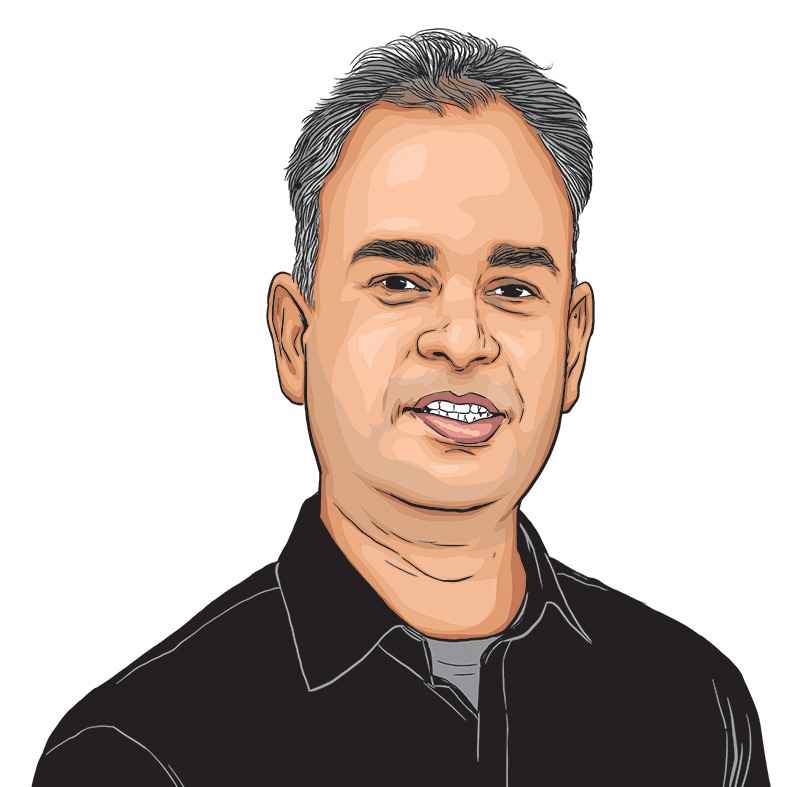Opinion PM Modi is right. International institutions have lost credibility
India needs to develop its own brand of multilateralism. The road to global leadership will pass through South Asia.
 Prime Minister Narendra Modi lambasted multilateral organisations, especially the United Nations, for their inability to contain international conflicts. (File Photo)
Prime Minister Narendra Modi lambasted multilateral organisations, especially the United Nations, for their inability to contain international conflicts. (File Photo) In a recent podcast with Lex Fridman, Prime Minister Narendra Modi lambasted multilateral organisations, especially the United Nations, for their inability to contain international conflicts. In his words, the UN has become “almost irrelevant” in the context of the challenges of contemporary times.
New Delhi has been persistent in its demands for reforming global institutions to make them representative and effective. It experiences a sense of exclusion in that despite being the most populous country, a rising global power, and a democracy, it is not a permanent member of the United Nations Security Council (UNSC), has low voting rights in the International Monetary Fund (IMF), and is still negotiating for membership in the Nuclear Supply Group (NSG).
From New Delhi’s perspective, global institutions, dominated by the West, are losing their credibility because of constitutive and operational deficiencies. Constitutive deficiencies refer to flaws in the creation, organisational structure, membership, hierarchy, and cumbersome processes of international institutions. Operational deficiencies are related to bureaucratic hurdles, budget constraints, low workforce and slow decision-making procedures. Most of the existing international institutions suffer from these shortcomings.
The biggest constitutive flaw in the UN is the hierarchical UNSC veto system in which the victors of World War II reserved the consecrated cabin for themselves, shoving others to jostle in the cattle class General Assembly. The West, with a population of about 12 per cent, controls 60 per cent of the seats in the UNSC. Moreover, if we add Russia, which claims to be a Eurasian state but aspires to be identified as part of the West, the representation goes up to 80 per cent. The anomaly cannot be starker. Barring China, there is no representation from Asia, Africa and Latin America in the UNSC.
Viewed in terms of civilisational representations, only Christian and Confucian civilisations have found seats at the high table. It defies all logic and wit that the most pivotal institution of global governance is grossly undemocratic. In a caustic remark in 2022, Ruchira Kamboj, India’s Permanent Representative to the UN, correctly pointed out that the UN was created on a fundamentally flawed premise of “to the victors belong the spoils”. There has been no sincere attempt to rectify that anomaly, even after 80 years.
Multilateral reforms refer not merely to the UNSC but to an entire gamut of global governance institutions such as the IMF, the World Bank, the WTO, the WHO, the NSG, and many more. In most of these organisations, the West has created formal and informal fences to preserve its interests, disallowing others to exert similar influences. Hence, the issue is not merely about representation but a substantive role in decision-making.
The inability of disgruntled nations to alter the status quo has led to a multilateral contest. To borrow the phrase of Julia Morse and Robert Keohane, experts on global multilateralism, such a contest takes two principal forms: “regime shifting” and “competitive regime creation”. Nations dissatisfied with existing institutional arrangements join hands and resort to “threats of exit… and the creation of alternative institutions”. In the realm of global multilateralism, two new sets of organisations are emerging. The first consists of states in which both West and non-West have representations, such as the G20, the QUAD and the Intergovernmental Panel on Climate Change (IPCC). The other set of organisations are non-Western, such as the BRICS (Brazil, Russia, India, China, and South Africa), the SCO (Shanghai Cooperation Organisation), and other regional organisations. Some experts have begun to contend that rather than focusing on UN reform, New Delhi should commit its resources to these new non-Western organisations which will have greater influence in the coming years.
Historically, India’s multilateralism underwent three distinct phases. It started with a high-decibel universalism (1947-1960) based on morality and idealism and was favourably disposed to the UN. However, with a huge shock coming from the UN on Kashmir, a gradual shift in India’s strategy occurred in the second phase (1961-1991). It engaged in what can be referred to as “regime shifting” or “parallel-institutionalisation”. The Non-alignment Movement (NAM, 1961) and G-77 (1964) were constituted during this period. The third phase of India’s multilateralism began with the end of the Cold War and the collapse of the Soviet Union in 1991. The NAM became largely irrelevant. In the last two decades, New Delhi, pursuing a policy of multi-alignment, has joined four discrete organisations, viz., the G20, the QUAD, the BRICS and the SCO. These institutions will gradually trespass on the territories of traditional institutions.
Nonetheless, India needs to develop a robust framework for multilateralism. The incumbent government has made remarkable progress in establishing bilateral ties with several untouched states but has not paid enough attention to developing its own brand of multilateralism. New Delhi faces several constraints in achieving its multilateral objectives. Besides resource constraints, a critical geopolitical impediment is cultivating a privileged partnership with the US without forfeiting its ties with Russia.
These geopolitical constraints should not come in the way of New Delhi’s initiatives to strengthen multilateralism in South Asia first, followed by developing frameworks for the Global South. It will have to evolve its own transcendental values by drawing from its coveted model of democracy, development, and diversity. Cultural determinants can sometimes be helpful but detrimental in developing ties with culturally distinct nations. India’s first and foremost priority should be its neighbourhood, as its road to global leadership will pass through South Asia.
(The writer teaches at the School of International Studies, Jawaharlal Nehru University. Views are personal)






